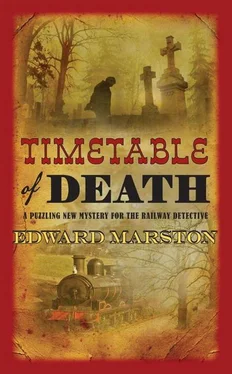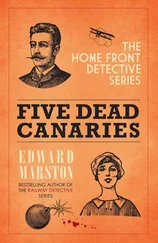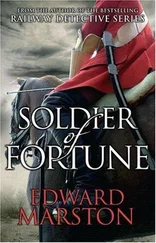Edward Marston - Timetable of Death
Здесь есть возможность читать онлайн «Edward Marston - Timetable of Death» весь текст электронной книги совершенно бесплатно (целиком полную версию без сокращений). В некоторых случаях можно слушать аудио, скачать через торрент в формате fb2 и присутствует краткое содержание. Год выпуска: 2015, ISBN: 2015, Издательство: ALLISON & BUSBY, Жанр: Исторический детектив, на английском языке. Описание произведения, (предисловие) а так же отзывы посетителей доступны на портале библиотеки ЛибКат.
- Название:Timetable of Death
- Автор:
- Издательство:ALLISON & BUSBY
- Жанр:
- Год:2015
- ISBN:9780749018122
- Рейтинг книги:4 / 5. Голосов: 1
-
Избранное:Добавить в избранное
- Отзывы:
-
Ваша оценка:
- 80
- 1
- 2
- 3
- 4
- 5
Timetable of Death: краткое содержание, описание и аннотация
Предлагаем к чтению аннотацию, описание, краткое содержание или предисловие (зависит от того, что написал сам автор книги «Timetable of Death»). Если вы не нашли необходимую информацию о книге — напишите в комментариях, мы постараемся отыскать её.
Timetable of Death — читать онлайн бесплатно полную книгу (весь текст) целиком
Ниже представлен текст книги, разбитый по страницам. Система сохранения места последней прочитанной страницы, позволяет с удобством читать онлайн бесплатно книгу «Timetable of Death», без необходимости каждый раз заново искать на чём Вы остановились. Поставьте закладку, и сможете в любой момент перейти на страницу, на которой закончили чтение.
Интервал:
Закладка:
Victor Leeming was pleased to see Philip Conway back in the village again. The reporter had picked up various snippets of information in Derby and he passed them on. The one that interested Leeming most was the fact that Superintendent Wigg had been overheard pouring scorn on the efforts of the Scotland Yard detectives and boasting that he would solve the crime before them.
‘Then where is he? The murder was committed here .’
‘But it may have been planned somewhere else, Sergeant.’
‘We’ve already accepted that. What does the superintendent know that we don’t? If he’s holding back anything from us, Inspector Colbeck will tear him to pieces. The man is supposed to help.’
‘Derbyshire police can be very territorial.’
‘It’s a common weakness among certain constabularies. Thinking they can handle complex investigations themselves, they get into a terrible mess then call on us to bail them out. Superintendent Wigg is only one of a kind.’
They were sampling the beer at the White Swan in Moor Street. Arriving with high expectations, Conway was disappointed that there’d been no apparent progress.
‘I was hoping you’d have … something to tell me,’ he said.
‘I do have something,’ said Leeming. ‘This beer is nowhere near as good as the stuff at the Malt Shovel. You should have warned me.’
‘You wanted to get around the village. Men who drink here wouldn’t go anywhere near the Malt Shovel or the Union Inn or the Prince of Wales, for that matter. Like any other village, Spondon is a collection of little groups.’
‘I found that out.’ He put a hand on the reporter’s arm. ‘I need a favour from you, Mr Conway.’
‘It’s granted before you even ask it.’
‘There’s something you could put in your newspaper for me.’
Leeming told him about the double sighting of a man with a wheelbarrow at a crucial time on the night of the murder. The post-mortem had been unable to give a precise time of death but it did specify the likely hours between which it must have occurred. The barrow had been seen well inside that wide spectrum of time. Leeming wanted an appeal for anyone else who might have spotted it to come forward and he suggested that the reward on offer be mentioned once again. Conway agreed to do his bidding and began to speculate on the murder.
‘Why push him up the hill in a wheelbarrow when the killer could have driven a horse and carriage right up to the church gate and unloaded the body there?’
‘People were about that night. Two of them, at least, saw the barrow. I fancy that a few more would have seen something as conspicuous as a horse and carriage outside the church. That would have attracted too much attention. Someone would have been bound to be curious.’
‘I never thought of that.’
‘If that’s what the killer used,’ said Leeming, ‘it was safer for him to leave the horse and carriage out of sight. That’s my theory, anyway. Earlier on, I borrowed the wheelbarrow from the churchyard and went back down the hill. I found a likely place to tuck away a horse and carriage. When I pushed the barrow uphill, I discovered what a struggle it was and I was only carrying some sacks of potatoes.’
‘You were being very thorough.’
‘I was hoping someone would see me who’d been out and about on the night of the murder. I wanted to jog their memory.’
‘And did you?’
‘I’m afraid not. The only person who stopped to talk to me was one of the village constables.’
‘Which one was it?’
‘He was a burly fellow named Jed Hockaday.’
‘Yes,’ said Conway, ‘I’ve met him. He’s a cobbler.’
‘He didn’t strike me as being all that intelligent. But he was very keen to help. He boasted that he’d been involved in the Enoch Stone case. Hockaday told me that he and Stone had been good friends.’
‘Then he was telling a barefaced lie, Sergeant.’
‘What do you mean?’
‘I’ve read all the reports of that investigation and Hockaday’s name pops up more than once. Far from being a friend of the victim, he was one of Stone’s enemies. The two of them came to blows over something. Hockaday deliberately misled you.’
‘Why should he do that?’
‘He was trying to impress you.’
‘What do you think of him?’
‘I wouldn’t trust him an inch,’ said Conway.
‘He insisted that the killer still lived in the village.’
‘Did you believe him?’
In the light of what he’d just heard, Leeming’s view of the cobbler had altered considerably. He’d been inclined to dismiss the man as someone of no practical use to him. Looking back, he remembered Hockaday’s size and obvious strength. Behind the lazy grin and the confident manner, there could be a more calculating person than he’d realised. Though unaware of the full details of the earlier murder case, Leeming had a strange presentiment.
‘I wasn’t sure if I believed him, but I do now. He spoke with such certainty that he seemed to have definite proof. There’s one sure way that he could have got that, Mr Conway.’
‘Is there?’
‘Yes,’ said Leeming, voicing a possibility. ‘Hockaday knows that the killer is still here because the man looks back at him in the shaving mirror every morning.’
Lydia Quayle read the newspaper report with a mixture of interest and repulsion. Though she wanted to throw it aside, something made her read on. There were some outline details about the nature of her father’s murder but no new information about the likely identity of his killer. When she saw that Scotland Yard detectives had been called in, she wondered how deeply they would rummage into the family life of the man she’d grown to despise so much. In the end, she tore herself away from the article, folding the newspaper up and dropping it into the wastepaper basket.
There was a light tap on the door, then it opened to admit a short, plump woman of middle years with an enquiring smile.
‘May I come in, please?’
‘Of course you may,’ said Lydia. ‘This is your house.’
‘The house may be mine but this room is exclusively your territory. I made that clear from the start. Everyone is entitled to have a place that is solely theirs.’
‘I agree with that, Beatrice, and I’m deeply grateful.’
Lydia indicated a chair and her friend sat down opposite her. Beatrice Myler had been her salvation. She was a kind, gentle, sympathetic woman who made no demands on her. They had met in Rome when both of them were on sightseeing tours. In the wake of the discovery of Lydia’s secret romance, she had been sent off to Europe with her former governess in the hope that the trip would expunge all her feelings for Gerard Burns. In fact, it did quite the opposite. She thought about him constantly and blamed herself for getting him summarily dismissed from a job that he enjoyed so much. Lydia kept wondering how he would cope and if he was still thinking fondly of her. It was only when she’d bumped into Beatrice Myler in the crypt of a little Italian church that she found herself able to forget about her past life for a while.
They were two intelligent women with shared interests in music and literature. Beatrice also had a passion for Italian culture and she fired the younger woman with her enthusiasm. Neither was travelling with ideal companions. Lydia was partnered by the elderly governess who was, in essence, her gaoler, paid to watch her carefully and keep her well away from England. Beatrice was there with her uncle, a retired archdeacon in his seventies with an arthritic hip. He and the governess were quite happy to sink down on any available seating and leave the others to their own devices.
‘I don’t know what I’d have done without you,’ said Lydia.
Читать дальшеИнтервал:
Закладка:
Похожие книги на «Timetable of Death»
Представляем Вашему вниманию похожие книги на «Timetable of Death» списком для выбора. Мы отобрали схожую по названию и смыслу литературу в надежде предоставить читателям больше вариантов отыскать новые, интересные, ещё непрочитанные произведения.
Обсуждение, отзывы о книге «Timetable of Death» и просто собственные мнения читателей. Оставьте ваши комментарии, напишите, что Вы думаете о произведении, его смысле или главных героях. Укажите что конкретно понравилось, а что нет, и почему Вы так считаете.












